Space
Sign up for our newsletter
We summarize the week's scientific breakthroughs every Thursday.
-
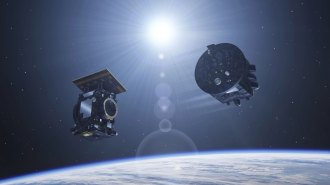 Space
SpaceA spacecraft duo will fly in formation to create artificial solar eclipses
ESA’s Proba-3 mission will use one satellite to block out the sun for another satellite, bringing the sun’s middle corona into new focus.
-
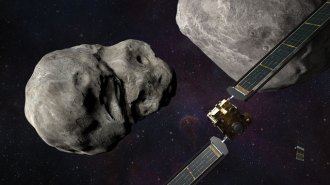 Space
SpaceWhat will it take to defend the world from an asteroid?
In How to Kill an Asteroid, Robin George Andrews looks at the successes and shortcomings of planetary defense.
By Shi En Kim -
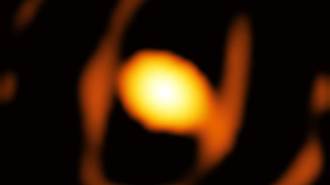 Astronomy
AstronomyThis is the first close-up image of a star beyond our galaxy
The first-ever close-up of an extragalactic star looks different than expected and might give a view of what stars look like at the end of their lives.
-
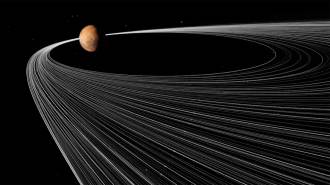 Planetary Science
Planetary ScienceMars’ potato-shaped moons could be the remains of a shredded asteroid
Phobos and Deimos could have formed from asteroid debris, a new study suggests. An upcoming sample return mission will help test the idea.
-
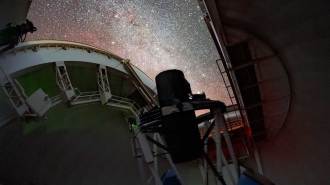 Cosmology
CosmologyEinstein’s gravity endures despite a dark energy puzzle
The DESI project previously reported that dark energy — long thought to be constant — changes over time. A new analysis reaffirms that claim.
-
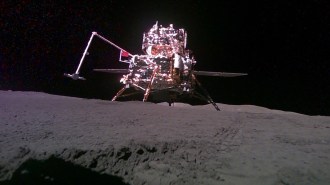 Planetary Science
Planetary ScienceA first look at rocks from the lunar farside create a volcanic mystery
Rocks returned by China’s Chang’e-6 mission suggest volcanic activity just 2.8 billion years ago but lack telltale heat-generating elements.
-
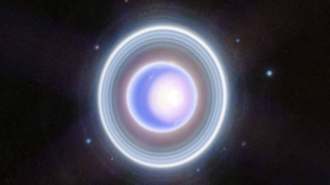 Planetary Science
Planetary ScienceUranus may have looked weird when NASA’s Voyager 2 flew by
A solar wind event days before the NASA probe flyby in 1986 may have compressed the planet’s magnetosphere, making it look odder than it usually is.
-
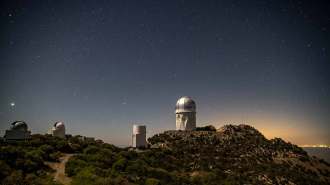 Astronomy
AstronomyA cosmic census triples the known number of black holes in dwarf galaxies
The DESI survey reveals that active black holes in small galaxies are common. The findings may help reveal how the two cosmic bodies evolve together.
-
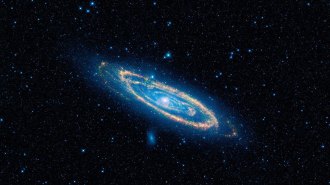 Astronomy
AstronomyA star winked out of sight. Could it be a ‘failed supernova’?
The dramatic dimming of a star in the nearby Andromeda galaxy could mark the birth of a black hole.
-
 Astronomy
AstronomyA zombie star’s spiky filaments shed light on a 12th century supernova
A 3-D map of the strange remains of a supernova seen in 1181 traces the odd tendrils of gas that jut out for several light-years in all directions.
-
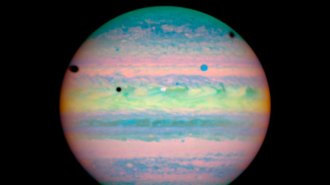 Planetary Science
Planetary Science50 years ago, scientists found a new moon orbiting Jupiter
In 1974, astronomers discovered Jupiter’s 13th moon. They now know of at least 95 moons and have launched missions to study some up close.
-
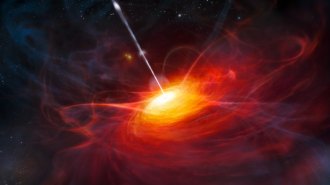 Space
SpaceA distant quasar’s black hole is oddly huge for its galaxy
The black hole’s mass is over half that of all the stars in the surrounding galaxy, a record for any galaxy hosting a quasar.
By Ken Croswell